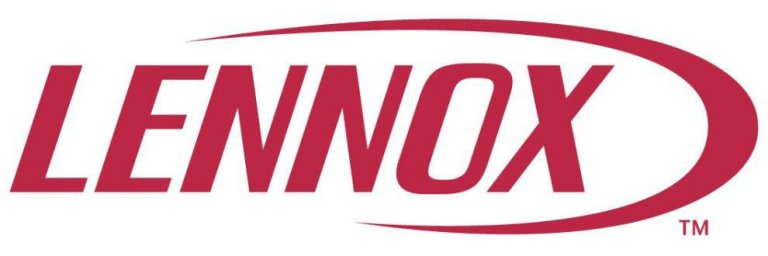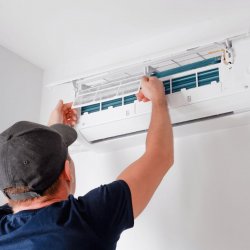The HVAC industry represents a vital and dynamic sector, offering robust career opportunities due to the ongoing demand for skilled professionals. With climate control systems essential in residential, commercial, and industrial buildings, the need for competent HVAC technicians continues to grow.
Investing in HVAC training is a critical step for anyone looking to secure a successful career in this field. In this article, Season Control explores the benefits of HVAC training, the types of available programs, and the potential career paths and advancements in the industry.
Why Invest in HVAC Training?
Growing Demand for Skilled Technicians
The Bureau of Labor Statistics projects that employment in HVAC fields is expected to grow by 6% from 2022 to 2032. Skilled technicians will become high in demand as older systems need upgrading or replacement and newer, more energy-efficient technologies are installed
Sustained Job Security
The HVAC industry is less susceptible to economic downturns than many other sectors. Homes, hospitals, schools, and businesses always need climate control, regardless of the economic climate. Investing in HVAC training opens the door to a career with strong job security.
Increasing Demand for Green Technologies
As more businesses and homeowners seek to reduce their carbon footprint, the demand for technicians skilled in green technologies and energy-efficient systems is rapidly increasing. Training in the latest HVAC technologies, including solar and geothermal systems, positions you at the forefront of this shift.
High Earning Potential
According to the U.S. Bureau of Labor Statistics, the median annual wage for HVAC mechanics and installers is $51,390 per year. As skills and experience grow, especially with specializations and certifications, so does the earning potential.
A Pathway to Entrepreneurship
For those inclined toward entrepreneurship, HVAC training can lead to owning and running a business. This career path offers the flexibility to be your own boss and the potential for significant financial rewards.
Opportunities for Advancement
With further education and certifications, HVAC technicians can advance into higher roles such as supervisors, managers, or specialists in areas like system design or energy management. Each step up can lead to increased responsibility and higher pay.
Diverse Work Environments
HVAC technicians work in various settings – from the comfort of private homes to the more challenging environments of industrial complexes. This diversity means that every day can offer new challenges and learning opportunities, keeping the workday interesting and engaging.
Lifelong Learning
The HVAC field is constantly evolving with new technologies and regulations. Continuous learning is a part of the job, making it an excellent choice for those who dislike monotony and enjoy keeping up with new technological advancements.
Types of HVAC Training Programs
- Certificate Programs: These are short-term programs that focus on the basics of HVAC systems, including installation, maintenance, and repair. They are often offered by trade schools and community colleges and can last anywhere from six months to a year.
- Associate Degrees: An associate degree in HVAC technology provides a more in-depth education, including the principles of heating and cooling systems, energy management, and, sometimes, basic business and project management skills. These programs typically take two years to complete.
- Apprenticeships: Combining classroom instruction with on-the-job training, apprenticeships are excellent for gaining practical experience while learning. These programs usually last between three to five years and are often sponsored by unions or industry associations.
- Online Courses: For those who need a flexible schedule, online HVAC courses can provide foundational knowledge and are often supplemented by local hands-on training opportunities.
Additionally, many trade schools, community colleges, and industry associations offer scholarships and grants specifically for HVAC students. This makes HVAC training more accessible for individuals who might not have the financial means to pursue higher education.
Essential Skills Acquired During HVAC Training
- Technical Proficiency: Trainees learn to install, maintain, and repair various types of HVAC systems, ensuring that installations meet safety and performance standards.
- Electrical Skills: The program covers the safe handling of electrical components, understanding HVAC controls, and using diagnostic tools for electrical troubleshooting.
- Refrigeration Techniques: Technicians gain expertise in handling refrigerants, including proper charging and recovery, in accordance with EPA regulations.
- Safety Compliance: HVAC training emphasizes adherence to health and safety protocols to minimize risks associated with high-voltage equipment and hazardous materials.
- System Design Understanding: Trainees learn how to read and interpret blueprints and system designs, crucial for effective installation and troubleshooting.
- Energy Management: The training focuses on installing and maintaining energy-efficient systems to meet the increasing demand for sustainable solutions.
- Customer Service and Communication: Effective communication skills are taught to help technicians explain technical information clearly and ensure customer satisfaction.
Career Paths in HVAC
- Residential Technician: Specializing in home air conditioning and heating systems.
- Commercial Technician: Working on larger systems in buildings like offices or malls.
- Refrigeration Technician: Focusing on systems that cool products or storage spaces.
- Sales and Service Manager: Overseeing customer interactions and service operations.
- Business Owner: Running an independent HVAC service business.
Advancements and Continuing Education
Continuing education is crucial to staying competitive and up-to-date with the latest technologies. Many technicians pursue additional certifications from organizations like the North American Technician Excellence (NATE) or attend workshops on new equipment and technologies.
Advanced certifications can lead to higher positions within companies or specializations in commercial refrigeration or solar heating.
Final Thoughts: Securing a Bright Future in HVAC
A career in HVAC offers a promising future with excellent job prospects, competitive salaries, and opportunities for advancement.
Investing in quality HVAC training equips aspirants with the necessary skills and knowledge to succeed in this essential industry. Whether through a certificate, degree, or apprenticeship, the training opens the door to a rewarding career path filled with diverse challenges and continual learning.









